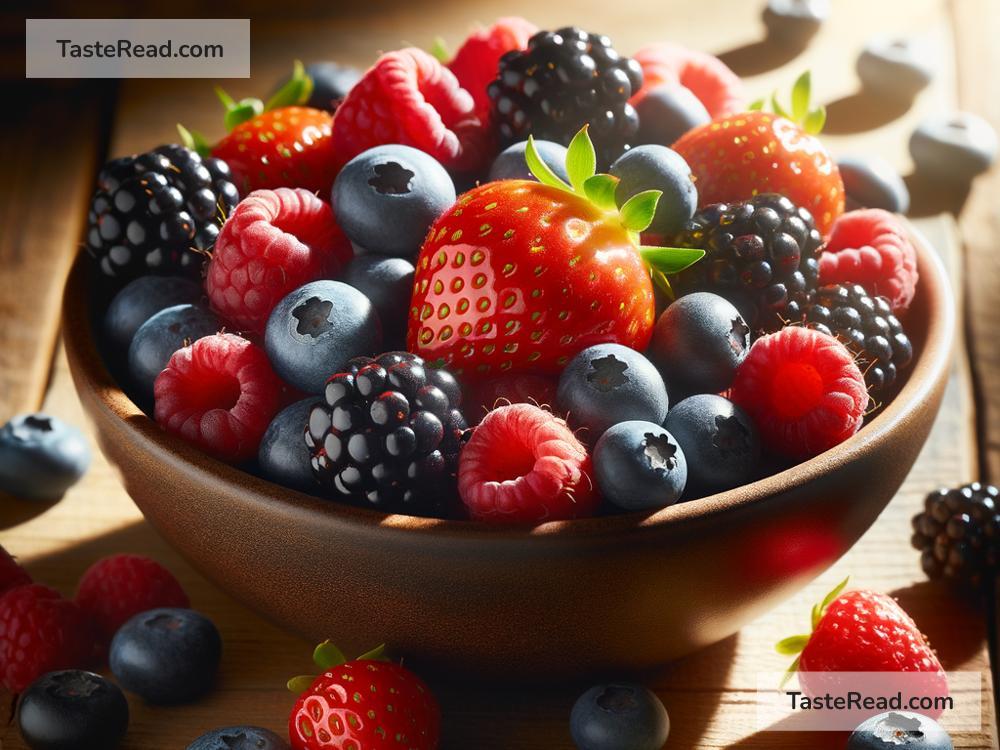Why Berries Have Unique Flavor Profiles
Berries are loved all over the world for their incredible flavors. Whether you’re eating strawberries, blueberries, raspberries, or blackberries, each type of berry has a distinct taste that makes it special. Have you ever wondered why berries taste so unique? Let’s explore the fascinating science and nature behind their amazing flavor profiles in simple words.
What Makes a Flavor?
Before we jump into why berries taste unique, let’s talk about what “flavor” means. Flavor isn’t just one thing; it’s actually a combination of factors. When we eat something, we experience flavor through our taste buds, our sense of smell, and even the texture of the food.
Taste can be sweet, sour, bitter, salty, or umami (savory). Smell is even more important—most of what we call flavor comes from the aroma of the food. To understand why berries have unique flavor profiles, we need to look at the basic ingredients that create taste and smell.
Sweetness from Natural Sugars
One reason berries are so delicious is their sweetness, which comes from natural sugars. The level of sweetness can vary depending on the type of berry and how ripe it is. For example, a fully ripened strawberry is much sweeter than one that’s not quite ready to eat.
Blackberries and raspberries also have natural sugar, but their sweetness is often balanced by other flavors like tartness. This combination makes them less sugary than strawberries but equally enjoyable. Some berries, like cranberries, hardly have any sweetness at all. Instead, they lean toward sourness, giving them a bold and zesty flavor.
Sourness from Acids
Berries are not only sweet; they usually have a hint of sourness to balance the flavor. This sour taste comes from natural acids within the fruit, such as citric acid and malic acid. These acids don’t just add tartness; they also preserve the berry and give it a refreshing zing.
For example, blueberries often have a mild sourness hidden behind their sweetness, while raspberries are known for their tangier, sharper taste. There’s a perfect balance between sugar and acid in most berries, which is why they taste so delightful and well-rounded.
Fragrance: The Secret to Unique Berry Flavors
Did you know that much of what makes berries taste unique actually comes from their smell? The aroma of a berry is packed with complex compounds that give it its signature fragrance. These compounds are called “volatile organic compounds,” and they are key to creating the berry’s distinctive flavor.
For instance, the smell of a strawberry is fruity and floral, while blueberries have a deeper, more earthy scent. Raspberries have a sweet and slightly tart fragrance, while blackberries smell rich and woodsy. These different scents combine with the sweetness and sourness of the berry to create its overall flavor profile.
Texture Matters Too
Flavor isn’t just about taste and smell—texture plays a big role as well. The way a berry feels when you bite into it adds to your experience. For example, the juiciness of a ripe strawberry makes it refreshing, while the tiny seeds in raspberries add a bit of crunch.
Blueberries are smooth and pop with juice when you bite them, giving them a satisfying burst of flavor. Blackberries, on the other hand, have a slightly firmer texture and often produce a rich, jam-like experience as you chew them. Texture enhances the overall enjoyment of berries and makes each type special.
Where Do Unique Berry Flavors Come From?
The unique flavor profiles of berries are influenced by several factors:
-
The Berry’s Genetics: Each type of berry has its own genetic makeup, which determines its levels of sugars, acids, and aromatic compounds. This is why blueberries taste different from strawberries or raspberries.
-
Ripeness: The taste of berries changes as they ripen. An unripe berry usually has more sourness, while a ripe berry has higher sugar content and a more balanced flavor.
-
Environment: Where a berry is grown affects its flavor. Berries grown in sunny regions may be sweeter because the extra sunlight helps them produce more sugar.
-
Wild vs. Farmed: Wild berries may taste stronger or more complex because they grow naturally and aren’t altered by farming techniques. Farm-grown berries are bred to be sweeter or bigger, which can change their flavor.
Why We Love Berries
We love berries because they offer a flavor experience like no other. Their natural balance of sweetness and sourness, combined with unique aromas and textures, makes them irresistible. They’re also versatile—you can eat them fresh, add them to desserts, blend them into smoothies, or cook them into jams.
Beyond their amazing flavors, berries are packed with health benefits. They’re rich in vitamins, antioxidants, and fiber, making them a smart snack for our bodies and taste buds alike.
Final Thoughts
Berries are a gift from nature, full of complexity and variety. No two types of berries taste the same, and even individual berries can have slight differences in flavor based on their ripeness or growing conditions. When you enjoy a berry, you’re experiencing a harmony of sweetness, sourness, scent, and texture that nature has perfected.
So the next time you take a bite of your favorite berry, stop for a moment and appreciate its unique flavor profile. It’s not just food—berries are little miracles of nature that bring joy and flavor to our lives.


